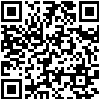外教一對(duì)一課程領(lǐng)取私人定制英語(yǔ)學(xué)習(xí)方法
相關(guān)帖子
- 通宵整理!最新英語(yǔ)四六級(jí)怎么復(fù)習(xí)?英語(yǔ)四六級(jí)對(duì)自己有什么作用?
- 值得收藏!2020最新英語(yǔ)高考作文萬(wàn)能套用模板,以后再也不怕寫(xiě)作文了!
- 2019年最新英語(yǔ)作文寫(xiě)信萬(wàn)能句子
- 英語(yǔ)作文總是寫(xiě)不好?作文萬(wàn)能句型分享,助你得高分!
- 【英語(yǔ)學(xué)習(xí)】英語(yǔ)作文常用過(guò)渡詞和句型總結(jié)
- 英語(yǔ)學(xué)習(xí)的18條黃金法則, 家長(zhǎng)必須收藏!
- 練習(xí)英語(yǔ)口語(yǔ)的幾個(gè)錦囊妙計(jì)!
- 英語(yǔ)口語(yǔ)|課本上學(xué)不到的英語(yǔ)口語(yǔ)表達(dá)
- 英語(yǔ)詞匯拓展|有關(guān)work的十種英語(yǔ)表達(dá)方式
- BEC證書(shū)有沒(méi)有用?值不值得考?含金量如何?
最新文章
- 【職場(chǎng)英語(yǔ)】郵件寫(xiě)不好?小心客戶已讀不回!
- 【外貿(mào)老司機(jī)の秘籍】這些商務(wù)英語(yǔ)暗號(hào)不懂?客戶分分鐘和你“斷聯(lián)”!
- 【5分鐘搞定】職場(chǎng)人必收的5個(gè)高頻商務(wù)英語(yǔ)表達(dá)!
- 3個(gè)讓外教驚艷的英語(yǔ)表達(dá)技巧,讓你秒變“口語(yǔ)刺客”!(附“社牛”秘籍)
- 這些職場(chǎng)面試經(jīng)典英文回答,獻(xiàn)給畢業(yè)的你!讓畢業(yè)生輕松完勝資深員工!
- ?2025能帶來(lái)好運(yùn)的英文微信昵稱(140個(gè)),墻裂馬住!!
- 【急】2025最新線上一對(duì)一英語(yǔ)外教哪個(gè)好?一節(jié)課多少錢(qián)?
- 【求問(wèn)】有沒(méi)有報(bào)過(guò)班的說(shuō)一下成人學(xué)習(xí)英語(yǔ)選擇哪個(gè)機(jī)構(gòu)?
- 好想找個(gè)靠譜一點(diǎn)的成人英語(yǔ)網(wǎng)課,大家有什么推薦嗎?
- 【在線等!急!】學(xué)好英語(yǔ)口語(yǔ)一定要報(bào)班嗎?英語(yǔ)口語(yǔ)培訓(xùn)班哪家好?
- 成人英語(yǔ)口語(yǔ)要怎么學(xué)? 有什么好方法嗎?
- 成人英語(yǔ)口語(yǔ)怎么學(xué)比較好?怎么學(xué)效果好?
- 成人一對(duì)一英語(yǔ)外教課有沒(méi)有必要?性價(jià)比高嗎?
- 深圳有沒(méi)有適合上班族學(xué)英語(yǔ)口語(yǔ)的機(jī)構(gòu)?有推薦嗎?
- 有沒(méi)有靠譜的線上英語(yǔ)外教?有推薦嗎?
學(xué)英語(yǔ)這些年,你都犯了哪些語(yǔ)法錯(cuò)誤?
1.could, should, or would
這三個(gè)讀音相近的詞困擾了不少英語(yǔ)學(xué)習(xí)者。
“should”用來(lái)提供建議,比如“That shirt looks great on you. I think you should buy it.”。
“would”則是用來(lái)描述不可能或者虛擬的事情,比如“I would love to go to Italy, but I don't have enough money.”,這句話就是在說(shuō)一件不可能發(fā)生的事。而“would”也可以表示委婉語(yǔ)氣,就像這句“Would you like some tea?”
“could”有三種用法——
①描述過(guò)去的能力,例:“When I was younger, I could run twice as fast.”
②描述將來(lái)可能發(fā)生的事,例:“If we work really hard, I think we could save up enough money for a vacation this year.”
③用于禮貌請(qǐng)求,例:“Could I have a cup of tea?”
2. there, their, or they're
這三個(gè)詞發(fā)音相同,用法卻完全不同。
“There”可以表示“那里”,表示一個(gè)指定地方,例如“The book is over there on the table.”;“there”也可以和be動(dòng)詞一起使用構(gòu)成“there+be"句型,例如“There are 5 cafes on this street.”。
“Their”是形容詞性物主代詞,意為“他(它)們的”,例如“That's their house.”。
“They're”是“they are”的縮寫(xiě),用法也是一樣,你可以說(shuō)“They're going to play soccer with us tonight.”,也可以說(shuō)“They are going to play soccer with us tonight.”,意思完全一樣。
3. its vs. it's
和上一條一樣,這兩個(gè)詞讀音相同,用法完全不同。“it's”是“it is”的縮寫(xiě),用法也是相同,你可以說(shuō)“It's really cold outside today.”,也可以說(shuō)“It is really cold outside today.”,意思完全相同。“its”則是“it”的物主代詞形式,意為“它的”,例如“This city is known for its amazing pasta.”。
4. a vs. the
許多語(yǔ)言中并沒(méi)有使用定冠詞與不定冠詞,因此對(duì)有些英語(yǔ)學(xué)習(xí)者來(lái)說(shuō),這是種難以區(qū)分的概念。當(dāng)你在談?wù)撘患挛锏臅r(shí)候,一般使用不定冠詞“a”,例如“Let's watch a movie.”,這句話中的“movie”并沒(méi)有特指;如果你要談?wù)摰氖挛锎蠹叶己苁煜ぃ蔷涂梢允褂枚ü谠~“the”,例如“Let's watch the movie.”,這句話中的“movie”則是表示一部談話雙方都知道的、正在談?wù)摰碾娪啊?/p>


